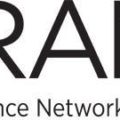Last updated on July 2nd, 2020
After the fall of the Soviet Union in 1989, the military coined the term, “VUCA,” referring to the “volatile, uncertain, complex, ambiguous” world we were now living in in the post-Cold War Era. Business schools like Harvard and MIT began to use the term “VUCA” after 9-11. It is now almost 20 years later, and if we ever wondered whether we lived in a VUCA environment, the past few months are proof of that.
Stress For Employees Is At An All-time High
According to a recent study, 69% of employees said the coronavirus is the most stressful time of their career, and 88% said they had experienced moderate to extreme stress over the past four to six weeks. The American Psychological Association (APA) stress study from April 2020 showed a significant increase in American’s stress level since last year and the largest increase in reported stress since the APA began this survey in 2007. The number one stressor for all Americans, regardless of ethnicity, party affiliation, whether they are parents of children under 18 or not, is the fear of a family member getting coronavirus.
If we are one of the lucky, privileged ones, we may have felt socially isolated while working remotely from home and, at times, struggled with boundaries between work and our personal lives.
Many people have been less fortunate. The health care workers on the front lines face fears of getting coronavirus themselves, fear of infecting a family member with coronavirus, inadequate PPE, and ridiculously long hours. Also, many have chosen to be emotionally present for patients whose family and friends are not allowed to visit.
Other essential workers are daily putting themselves and their families at risk to provide us with food and necessities. Most of these folks never signed up for work that put them in harm’s way and rarely get any form of “hazard pay.”
Six Ways For Leaders To Support Workers Affected By The Coronavirus
So if we are in positions of leadership, formally or informally, how should we show up and lead amidst such uncertainty and fear? What is it that our peers, team members, customers, and other stakeholders need from us?
1. Manage our stress effectively
People want their leaders and managers to be calm and deliberate—leaders who are reactive and stressed out add to their staff and team members’ stress and anxiety.
2. Share how you are impacted as a leader
Acknowledge how remote working or worrying about coronavirus is affecting you and your family. Be more personal, showing humility and vulnerability. If someone in your own family has been ill or even died, be willing to share this and to acknowledge that you are getting some support or help. A critical competency for leadership is modeling the way.
3. Share information with empathy and realistic optimism
This is especially important when delivering difficult news such as a reduction in work hours. Communicate what team members can do to help. Remain hopeful and realistically optimistic, sharing messages such as “we’ll get through this together.”
4. Be honest and transparent
Don’t hide bad news—share all the facts quickly. You don’t need to have all the answers. Instead you can say, “We don’t know, but we will figure it out” as leaders such as Jacinda Ahern, the Prime Minister of New Zealand, did.
5. Provide opportunities for regular communication.
People imagine the worst when communication stops, so give updates even when there is no new news. Communicate more frequently than usual, because the normal informal channels such as chatting in the hall are not an option. Find out what each of your team members need. Also, plan on at least weekly team check-ins, even if this didn’t happen in person. Longer strategy team meetings can happen more infrequently, such as once a month.
6. Provide forums for conversation and feedback
Find ways to collect feedback, such as pulse surveys or asking people in one-on-ones and team meetings about how they are doing. If there is a death or a loss of an employee, create circles of community to share the meaning of this loss, starting with those most directly impacted and then spreading out from there. If an employee is affected, immediately creating community is critical, particularly if there is a death.
We are living in a “brave new world,” and none of us know what the “new normal” is going to look like. It is undoubtedly a time where leaders are called upon to show up as the best version of themselves. Thus, even though it is a time of financial stress and cost, training and coaching are even more important than ever. Companies that survive and thrive will be those that show up in ethical and responsive ways for their employees, their customers, and their stakeholders. This depends on great leadership.
Please reach out to me at chris@insightbusinessworks.com if you or your team need assistance. If you have success stories or other approaches that have been helpful to you, please share them in the comments. Stay safe!







This is very thoughtfully written and well-said. Our office employees are working remotely, many juggling family and health issues; our Field Team is still out every day, on clients’ construction sites, working hard in the heat, but with added burden of safety worries and protocols. More than ever, the Leadership Team needs to be reaching out, communicating, and checking in. Challenging times, for sure! Thank you for sharing.
Thanks, Laurie for the feedback! I think it’s hard to reach out virtually for many leaders, but as you say more important than ever!